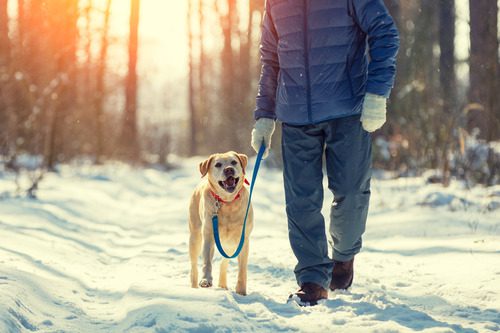Can Dogs Eat Marshmallows?
Marshmallows might seem like a harmless treat to share with your dog, but you should take a moment to consider whether they’re safe. While dogs have an incredible knack for eating anything they can get their paws on, that doesn’t mean every human snack is a good idea. Let’s explore whether marshmallows are safe for your dog and some healthier alternatives you can offer.

Are Marshmallows Safe for Dogs?
While marshmallows might look fun and taste sweet, they’re not a suitable snack for dogs. Most marshmallows are made from sugar, corn syrup, and gelatin, which provide no nutritional value and can lead to various health concerns for your companion. For starters, feeding your dog sugary snacks like marshmallows can contribute to weight gain, obesity, and even diabetes over time. Marshmallows are high in calories and sugar, making them an unhealthy option for regular consumption.
The Dangers of Xylitol
Another concern is xylitol, a sugar substitute used in some sugar-free marshmallows. Xylitol, sometimes known as birch sugar, is extremely toxic to dogs, even in small amounts, and can cause severe issues like low blood sugar, liver damage, and seizures. If your dog accidentally eats marshmallows containing xylitol, immediate veterinary care is necessary.
Gelatin and Additives
Beyond sugar, marshmallows contain gelatin, which in itself isn’t harmful to dogs but doesn’t provide any real nutritional benefits either. Some marshmallows may also include artificial flavors, colors, and other additives that aren’t good for your pet’s digestive system. While a single marshmallow here and there may not seem dangerous, remember that regular exposure to sugar and artificial ingredients can have long-term consequences for your dog’s health.
What Happens If My Dog Eats Marshmallows?
If your dog accidentally consumes a small number of regular marshmallows, you likely won’t see any immediate issues. However, you should watch for symptoms like vomiting, diarrhea, or changes in energy levels. These could indicate that your dog’s stomach isn’t agreeing with the sugary treat. Larger amounts or marshmallows containing xylitol could lead to more serious symptoms such as:
- Lethargy or weakness
- Tremors or seizures
- Rapid heart rate
- Collapsing
If your dog experiences any of these symptoms, contact your vet at The Village Vets – Plymouth Meeting right away. Our team is happy to provide guidance about your dog’s diet, so give us a call at (484) 820-1700 or schedule an appointment online.
When Veterinary Care is Necessary
If you suspect your dog has ingested a large amount of marshmallows or any containing xylitol, your pet requires veterinary attention immediately. Dogs that ingest xylitol can experience dangerous drops in blood sugar within 10-60 minutes, so do not delay seeking help.
Healthier Alternatives to Marshmallows for Dogs
When your dog is craving a snack, there are many healthier options designed specifically for their dietary needs. Dog treats are formulated to provide nutrition without the risks associated with human food, and they come in a variety of flavors and textures that dogs love. Instead of giving your dog marshmallows or other sugary snacks, try offering these safer alternatives:
- Dental chews: Designed to support your dog’s oral health, dental chews are a great option for a satisfying snack that also cleans their teeth. Look for options approved by veterinarians, as these can help reduce plaque and tartar buildup.
- Training treats: Small, low-calorie training treats are perfect for rewarding your dog without overfeeding. Brands like Zuke’s or Blue Buffalo offer bite-sized treats that are easy on your dog’s stomach and ideal for frequent use.
- Grain-free biscuits: If your dog has sensitivities to grains, there are plenty of grain-free dog biscuits available. These treats are often made with simple ingredients like sweet potatoes or peas and are a healthier option compared to sugary snacks.
- Limited-ingredient treats: For dogs with allergies or sensitive stomachs, limited-ingredient treats can help avoid triggering food sensitivities. These treats often feature a single protein source and minimal fillers.
Choosing the Right Dog Treats
When selecting treats for your dog, always check the ingredient list to ensure you’re offering something nutritious. Look for treats with natural ingredients and avoid those with excessive sugar, artificial flavors, or preservatives. You can also consult with your veterinarian to find treats that complement your dog’s regular diet and address any specific health concerns they may have.
The Importance of a Balanced Diet for Your Dog
While the occasional snack can be fun, ensure that your dog’s diet is balanced and nutritious. Dogs have specific dietary needs that should primarily be met through their regular meals, with treats given in moderation. A balanced diet helps maintain your dog’s weight, energy levels, and overall health.
Consulting with Your Veterinarian
If you’re unsure about what treats or snacks are appropriate for your dog, it’s always a good idea to consult with your veterinarian. They can help you determine what types of food best suit your dog’s nutritional needs and offer advice on creating a balanced diet. You can always call The Village Vets – Plymouth Meeting at (484) 820-1700 for dietary guidance or schedule an appointment online to discuss your dog’s nutrition.
Should Dogs Eat People Food?
Many pet owners are tempted to share their food with their dogs, but it’s important to know which foods are safe and which can pose a risk. While some fruits and vegetables can be healthy additions to your dog’s diet, most people food is not ideal for pets. Marshmallows, in particular, fall into the category of treats that offer no benefit and could harm your dog’s health.
Common People Foods to Avoid
Aside from marshmallows, there are other human foods that should be off-limits for dogs. Many people foods can be toxic to dogs including:
- Chocolate
- Grapes
- Onions and
- Garlic can all be toxic to dogs
Even seemingly harmless snacks like chips and bread can lead to weight gain and digestive issues due to their high salt and fat content.
Finding Safe Treats for Your Dog
In the end, your dog’s health and well-being depend on making smart choices when it comes to their diet. Treats like marshmallows may seem harmless, but there are far healthier alternatives that your dog will love just as much. Keeping your dog’s diet nutritious and balanced will help them live a long, happy life by your side. If you have any questions about your dog’s diet or need advice on finding the right treats, give The Village Vets – Plymouth Meeting a call at (484) 820-1700 or schedule an appointment online today.
Recent Posts
About The Village Vets
The Village Vets of Plymouth Meeting offers excellent service to clients in a comfortable, friendly atmosphere. To learn more about us and how we can better serve you and your pet here in Plymouth Meeting, PA, click the button below.
Share This Post
Recent Posts
About The Village Vets
The Village Vets is a network of three animal hospitals based in Atlanta, GA and the surrounding area. We offer honest, excellent service to our clients in a comfortable, friendly atmosphere. To learn more about our locations and how we can better serve you and your pet, click the button below.




